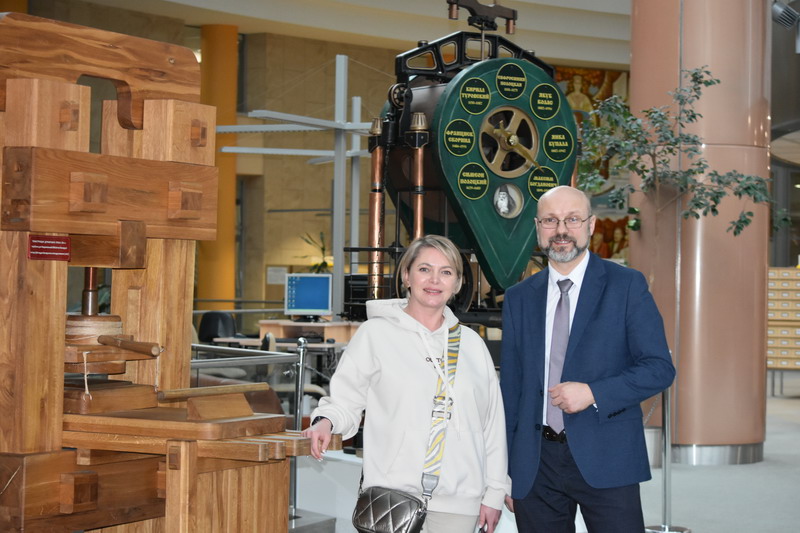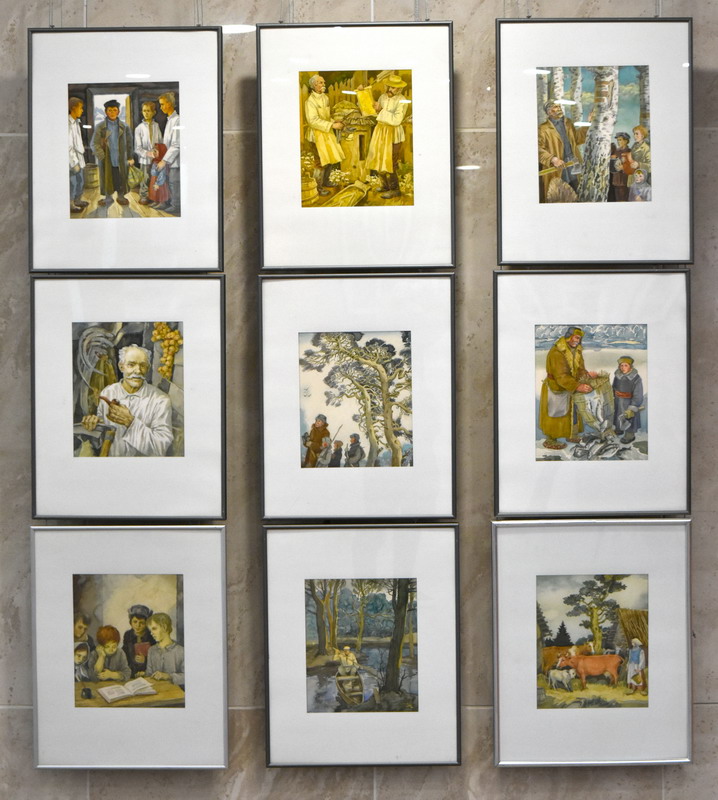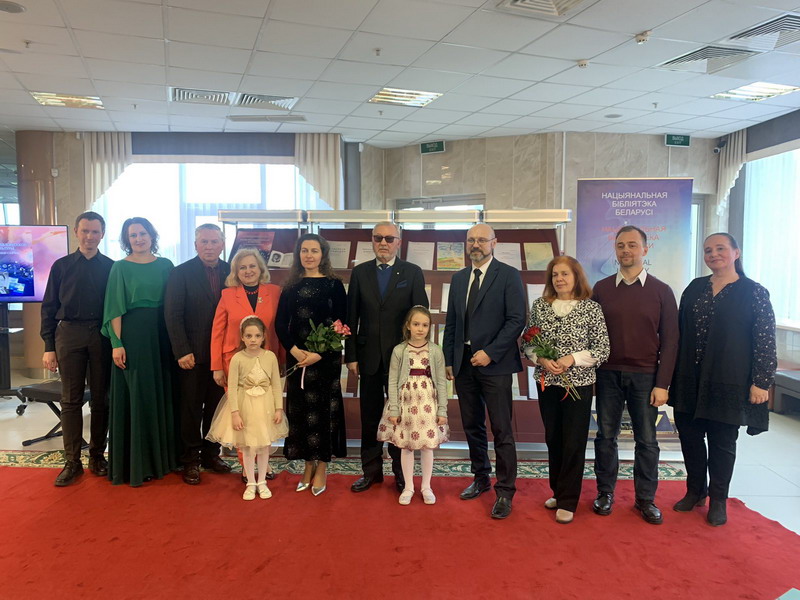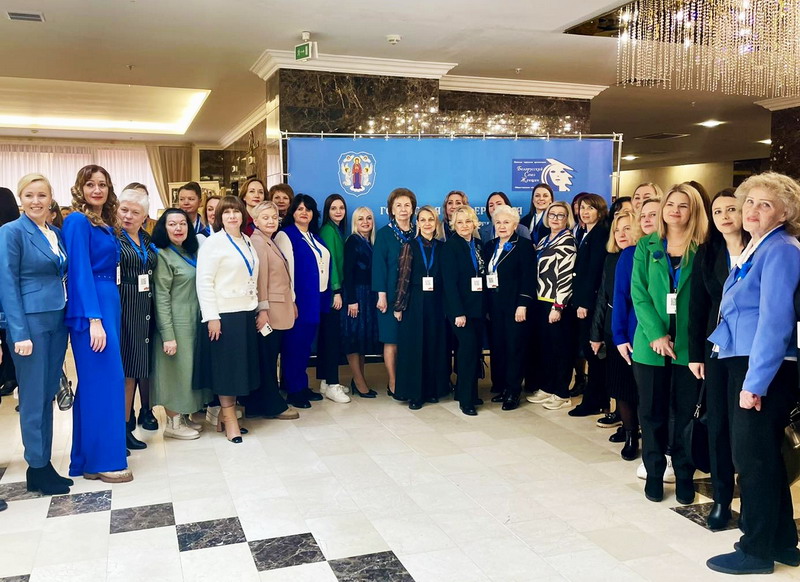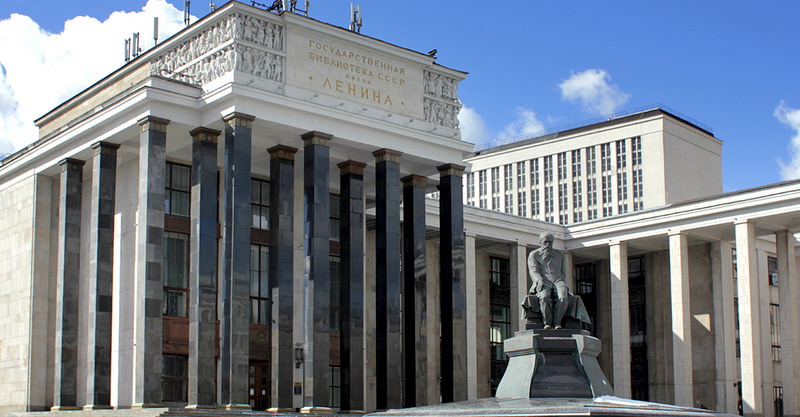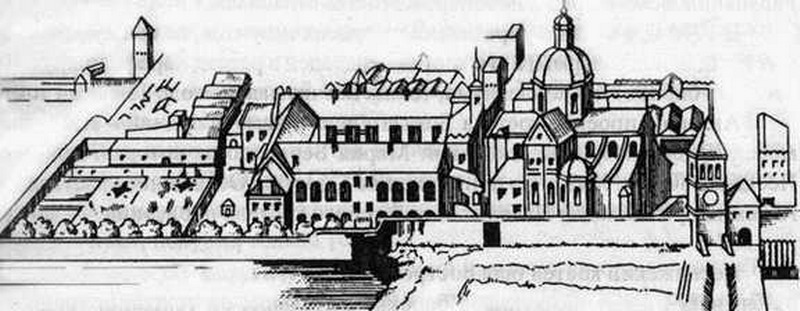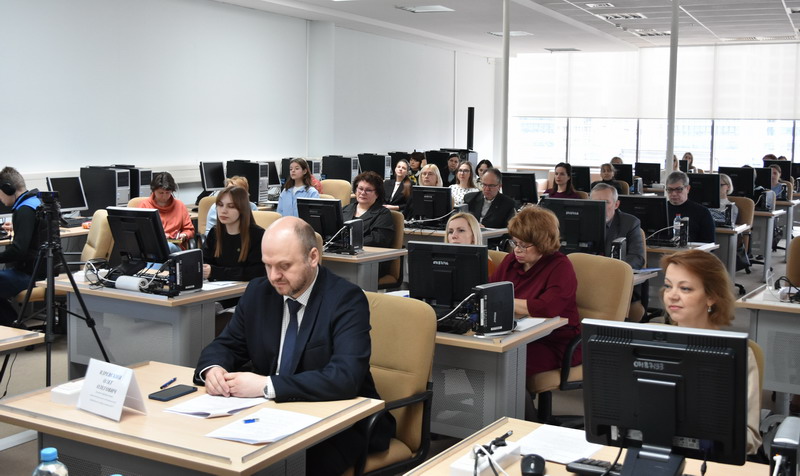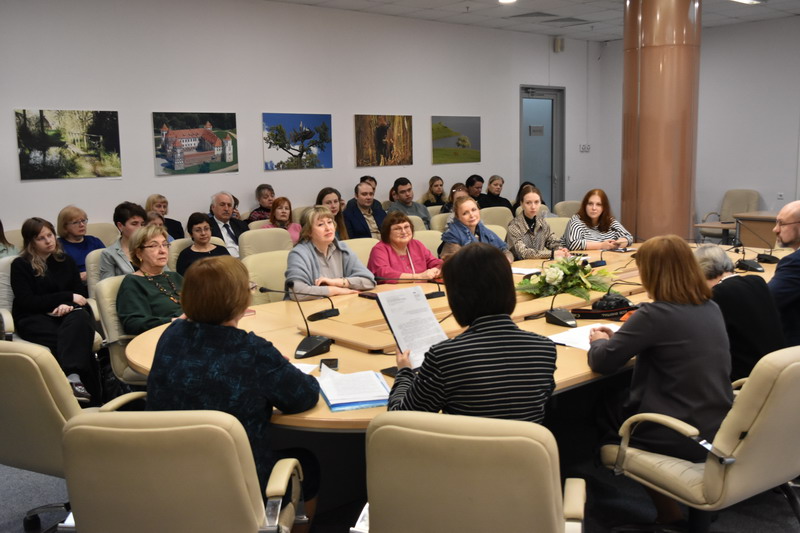At the "Encyclopaedia. National Project" exhibition, which opened in the Book Museum on the occasion of the 50th anniversary of the creation of the first Belarusian Universal Encyclopaedia, we talked with Ksenia Susha, the Chief Bibliographer of the Bibliology Research Department of the National Library of Belarus.
– Ksenia, tell us what encyclopedias are presented at the exhibition.
– Encyclopedias from ancient times to the present. This is the “Natural History” of Pliny (the Lyon edition of the 16th century), the first encyclopedia of the modern type – the French Cyclopædia: or, An Universal Dictionary of Arts and Sciences by Denis Didro (1751–1780), the most authoritative encyclopedia in English Britannica (1875–1888), the most successful German Brockhaus Enzyklopädie (1882–1887). The universal encyclopedias of our neighbors – Poland, Czech Republic, Russia, Lithuania are also shown. I will emphasize that the national thematics is characteristic of all these publications.
And certainly, the visitors to the exhibition will learn about the first attempt of the creation of the Belorussian encyclopedia in the first half of the twentieth century. Our visitors will get acquainted with the work on the creation of the first in the history of Belarus universal “Belorussian Soviet Encyclopedia” (1969–1975) and the national universal encyclopedia of the sovereign state – “Belorussian Encyclopedia” in 18 the volumes (1999–2004) of the association of Belorussian encyclopedists under Peter Ustinovich Brovka management. Creative and working materials, photographs and documents are presented at the exhibition. All these publications are exposed.
– Did the encyclopedias become the exact subject of your personal scientific research?
– Yes, I am working on my Ph.D. thesis on the Belarusian universal encyclopedias. An Encyclopedia is perceived in the context of the culture, it is interesting to analyze how culture was reflected in this text and how the encyclopedia influenced culture. I consider the national, ideological and value aspects of this phenomenon. I'm trying to perceive an encyclopedic text not only as a reference or source of information but also as a source of the worldview that scientists broadcasted to the masses.
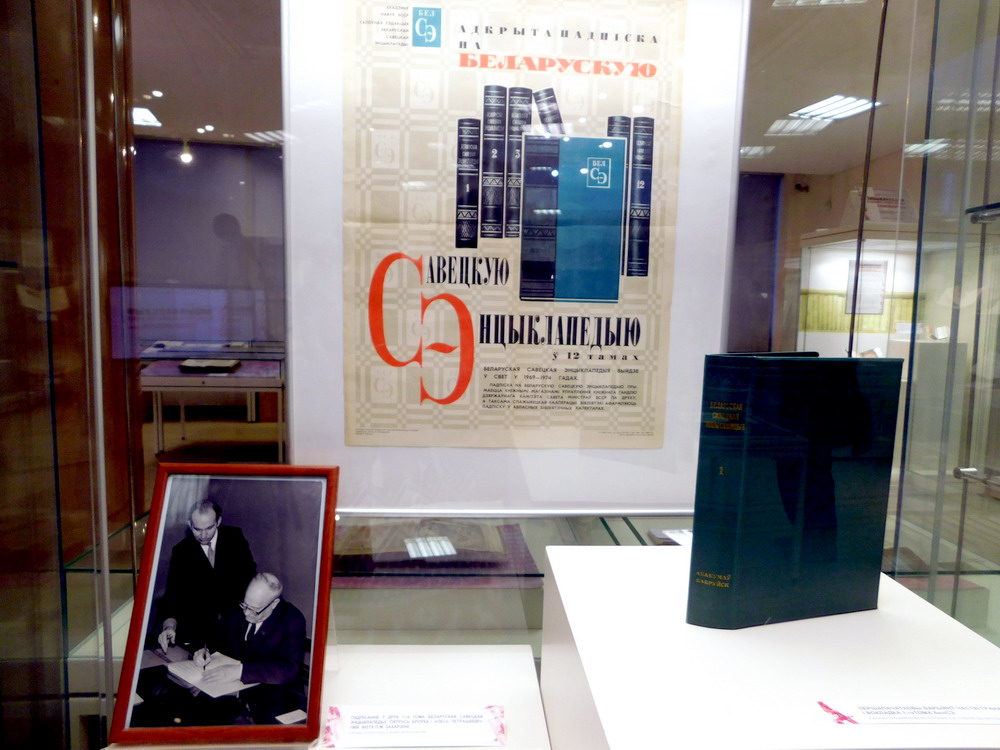
– How do you promote encyclopedias among schoolchildren, students, and postgraduates through the activities of the library?
– When I just started working in the Department of Rare Books and Old–Printed Books, I was taught: when a reader comes with a request on a specific topic – first of all, you need to look through an encyclopedia.
– Do encyclopedias are still relevant in the age of the Internet?
– Encyclopedias are in demand, as they contain accurate information verified by the scientific team, but it is time to digitize and put on the Internet in a user-friendly way our universal encyclopedias – the Soviet and the Belarusian.
– In addition to everything, you actively participate in the organization of conferences, seminars, exhibitions, scientific and educational projects conducted by the Bibliology Research Department, and publish scientific book collections.
– Yes. Every year we organize International Book Readings, print the materials of the conference, which always have a lot of interesting speeches and new finds.
My main focus is working on the department's publishing projects. I am the compiler and scientific editor of the collections of materials of the International Book Readers and collections of scientific articles Heritage: Documentary Monuments of Belarus, as well as other publishing projects, including a set of postcards Rare Books from the National Library of Belarus Collections, electronic editions of The Book of Belarus, 1517–1917: Consolidated Directory, Yayhim Karski Academician's Legacy, Sapeihiana: a Book Collection of the Sapeiha Family.
The collection of scientific articles Heritage: Documentary Monuments of Belarus is dedicated to the book culture of Belarus, we are very happy to publish interesting materials and invite authors to participate actively in searching, to open unknown pages of our culture.
– I wish You success and new achievements!
Interview: Ella Dvinskaya, especially for the Internet Portal of the National Library of Belarus, Photography: Ella Dvinskaya.
Susha Ksenia was born in Minsk on October 18, 1982.
In 2005 she graduated from the Belarusian State University of Culture and Arts with a degree in cultural studies, in 2007 she received a master's degree in humanities, and at the moment she is a ph.D. candidate in the Department of Cultural Studies. In 2004 she studied Polish language and culture at the University of Silesian (Katowice – Cieszyn).
She has been working in the Bibliology Research Department of the National Library of Belarus since January 2005.
She is the author of more than 30 articles in scientific collections, journals, conference materials, encyclopedias. The sphere of scientific interests: the book culture of Belarus; encyclopedia as a phenomenon of culture, features, functions and forms of encyclopedia in society; values in culture; religion as a form of worldview.
She is married. She has one daughter and one son.
Internet Portal Maintenance Department.


